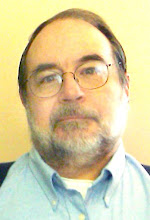I took no joy in story about Oneida YMCA, Hank Leo
 |
Dispatch Staff Photo by JOHN HAEGER
Hank Leo poses in Allen Park with his childhood home in the background on Dec. 13, 2012 in Oneida.
|
There have been some critical comments on Facebook directed against The Oneida Daily Dispatch, and me in particular, for publishing Sunday’s story about the involvement of Oneida YMCA and two local men in the Syracuse University cheating scandal.
This comes as no surprise, people don’t like to read bad things about their friends and revered institutions.
I took no joy in that story, either.
While I don’t know Jeff Cornish, Hank Leo is a well-liked guy, a pillar of the community and the Y is an important local institution.
I don’t know how he feels about me right now, but I’ve always counted Leo as a friend.
Every week I read and edited his column, offering constructive criticism where I could.
When he was ready to publish his first book, “Home When The Streetlights Come On,” basically a collection of his Dispatch columns, he asked me to write a forward, which I did.
In fact, while his high school English teacher, Debra Longnecker is rightly credited for editing Leo’s book, I know my weekly edits and mentoring played a role in its final form, too.And I enjoyed both working with him and providing publicity as he released this and subsequent books.
Leo’s been a speaker in The Dispatch’s Community Media Lab and a go-to guy to serve in organizations to benefit the city such at the chamber of commerce, hospital board and school board. As a sought-after emcee of local events, he’s appeared on the pages of The Dispatch many times.
So when the word got out about the involvement of the Y and my friend in the SU cheating scandal, I was as shocked as anyone.
Although it took me two days, I slogged through the entire densely-written 94-page NCAA report; I encourage everyone interested in any aspect of this situation to read it, too.
The report makes it clear others, closer to the athletic program, committed the greatest misdeeds, such as:
•Not following the school’s policy on illegal drug use;
•Keeping an athlete eligible to play by getting a grade changed more than a year after he took the course by apparently having someone else write an extra term paper for him.
•SU employees routinely completing assignments that athletes were handing in as their own work.
But it’s also clear that unless the NCAA is inventing everything out of whole cloth, the key allegation of academic fraud against Leo is true. The report says he was the internship supervisor of two athletes and told a professor they completed all their internship’s requirements, including 180 hours at the Y, when he didn’t know if that was true or not.
The report noted the prof gave the students grades based on Leo’s word. Later, SU investigated and determined that neither athlete completed the work and found both guilty of “academic integrity violations.”
No matter how you slice, the NCAA report is correct; all three committed academic fraud.
How severe was this misdeed? That’s for others to decide.
It’s a journalist’s job to present facts, even when they are unwelcome. However, everyone’s entitled to a say-so on what those facts mean.
You could say this sort of thing happens in major college sports all the time and it’s no big deal; Leo just had the bad luck to get caught.
Or you may view it more harshly and say it disqualifies him from continuing to serve on the school board.
The NCAA investigators say Leo told them that at the time that he was certifying the students’ internship work “he had just learned of…‘a big gigantic checking account,’ (with the YMCA tax number that Jeff Cornish was using to improperly pay athletes). The part-time tutor (Leo) became very ‘nervous’ and he admitted that he ‘did not want to hurt the student-athletes’ chances’ of receiving credit for the course,” the report says.
Once again this shows Leo’s a nice guy, but he broke an important rule.
Since I also have a right to an opinion, I’d like to think my friend fell under the influence of a bad crowd at the Carrier Dome, where winning is clearly more important than how you do it.
Read the full report:
Read our story from Sunday:
Read other coverage
Syracuse.com:
New York Times: http://www.nytimes.com/2015/03/10/sports/ncaabasketball/misdeeds-at-syracuse-are-traced-to-unlikely-place-ymca.html?_r=0
Nonprofit Quarterly:
 RSS
RSS


